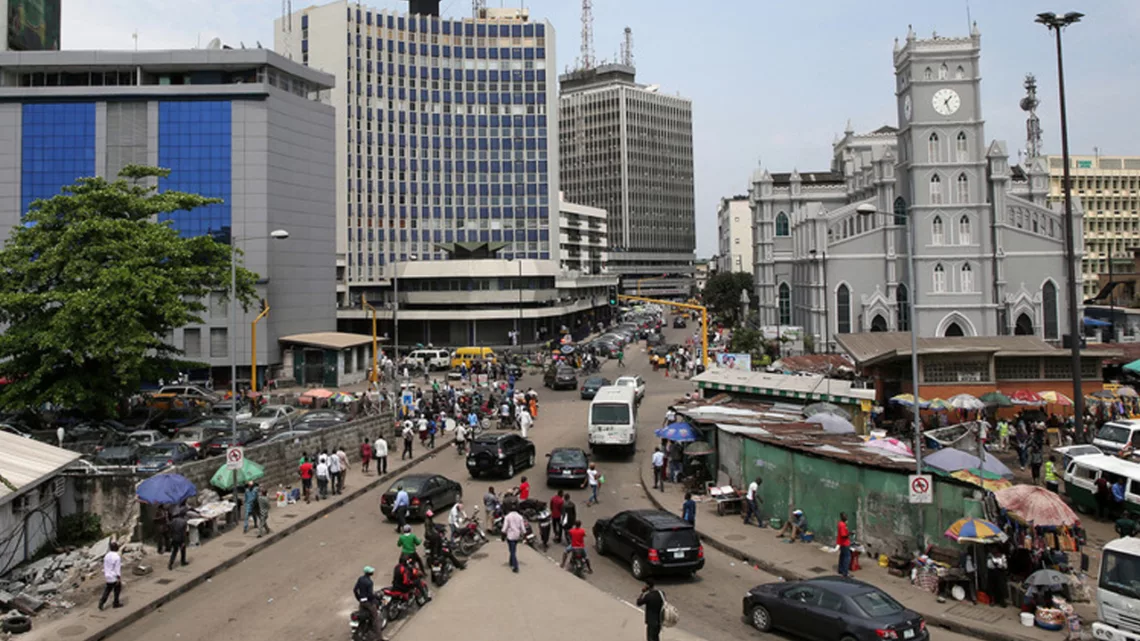In the cacophony of today’s news cycle, Nigeria often finds itself painted in broad strokes of crisis and controversy. Headlines scream of political turmoil, economic challenges, and social unrest. It’s easy, amidst the chaos, to lose sight of the broader narrative, the ‘trendlines’ that weave the fabric of our nation’s development. Beyond the drama and tumult lies the heart of Nigeria, a nation with a history, a present, and a future that extends far beyond the immediacy of breaking news.
As citizens, we must cultivate the ability to look beyond the headlines that dominate our screens and front pages. The narrative of a nation is not encapsulated in a single news story; rather, it emerges from the steady evolution of societal trends. To truly understand where Nigeria is headed, we must adopt the long view, recognising that the trajectory of our nation’s development is shaped by more than just the latest political scandal or economic downturn.
The constitution of Nigeria envisions a society where citizens can enjoy a better life and realise their potential. What does a ‘better life’ mean, though? It extends beyond economic prosperity; it encapsulates the sustainable livelihoods of citizens, the delivery of essential services such as health and education, community safety, and inclusiveness. A successful society, in the truest sense, is one that provides its people with the opportunities and resources needed to thrive.
While modernity is often viewed as a panacea for societal ills, we must tread cautiously. The process of development is not without its challenges. It is a disruptive force, capable of upending traditional norms, transforming institutions, and redefining power structures. Yet, development need not be synonymous with the obliteration of cultural identity. The key lies in finding a delicate balance – progress that preserves the essence of what makes us uniquely Nigerian.
The question arises: Can we chart a path to development while still honoring our traditions and cultural heritage? The negative realities of development often loom large – the potential erosion of cultural values, the disruption of age-old practices, and the fracturing of community bonds. However, it is crucial to recognize that modernity is not a monolithic force; it is a flexible and adaptive process. Our challenge is to ensure that as we evolve, we carry forward the richness of our traditions, incorporating them into the mosaic of progress.
Nigeria is at a crossroads, and the choices we make today will shape the nation for generations to come. Are we better off now than we were twenty years ago? It’s a question that demands introspection. Despite the headlines that might suggest otherwise, there are positive trendlines in our society. Education, for instance, has seen significant strides. The youth are more connected and informed than ever, presenting a potent force for change.
Health services, though facing challenges, have also improved in certain aspects. The fight against diseases like malaria and polio showcases the resilience of our healthcare system. Community initiatives, often overshadowed by political theatrics, work tirelessly to address local issues and foster inclusiveness.
However, to chart a successful course for the future, we must acknowledge the roadblocks. Corruption, a persistent challenge, threatens to derail progress at every turn. Economic inequality persists, hindering the realisation of a truly inclusive society. Security concerns, both internal and external, cast a shadow over our collective well-being.
Looking ahead, the question remains: Will we be better off twenty years from now? The answer lies in our ability to confront these challenges head-on, to transform adversity into opportunity. The path to development is fraught with difficulties, but it is also laden with possibilities. As a nation, we must harness our collective resilience, drawing strength from our diverse cultural tapestry.
The concept of a ‘better life’ is not one-size-fits-all. It is deeply personal and rooted in the unique aspirations of individuals. Development should not impose a singular narrative but should instead create a tapestry where each thread contributes to the richness of the whole. It is possible to modernise without sacrificing our traditions, to progress without losing the essence of what makes us proudly Nigerian.
The key lies in fostering a national dialogue that transcends political affiliations and ethnic divides. We must unite under the banner of a shared vision for a better Nigeria, one that respects our traditions while embracing the opportunities that progress affords. This dialogue should extend beyond the corridors of power to include the voices of everyday Nigerians whose experiences shape the true narrative of our nation.
In the journey towards development, we must redefine success. It is not merely economic growth but the holistic well-being of our citizens. Success is measured not just in GDP figures but in the quality of education our children receive, the accessibility of healthcare, and the safety of our communities. It is a society where every citizen has the opportunity to thrive, irrespective of their background.
Our development must be rooted in sustainability, ensuring that progress today does not compromise the ability of future generations to meet their own needs. This requires a shift towards more inclusive and environmentally conscious policies, recognising that the well-being of our planet is intricately linked to the well-being of our people.
As we navigate the complexities of development, we must be vigilant guardians of our cultural heritage. Our traditions are not obstacles to progress; they are the bedrock upon which we build our future. In preserving our cultural identity, we anchor ourselves in a shared history that provides resilience in the face of change.
The long view demands that we move beyond the myopia of immediate challenges and envision a Nigeria where the promises of the Constitution are fulfilled. It requires us to be architects of our destiny, shaping a future that honors our traditions while embracing the opportunities that lie ahead. The journey will be arduous, but the destination is a Nigeria that thrives – a beacon of success, inclusiveness, and sustainable progress.





